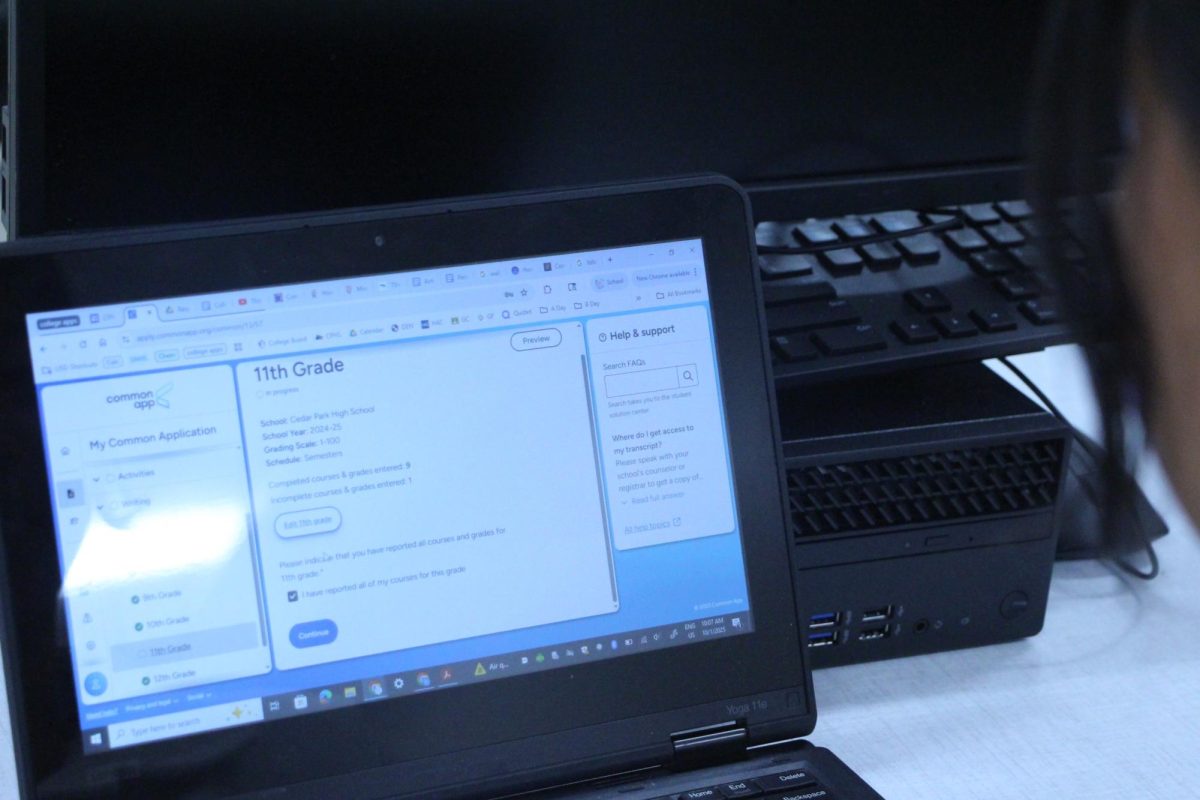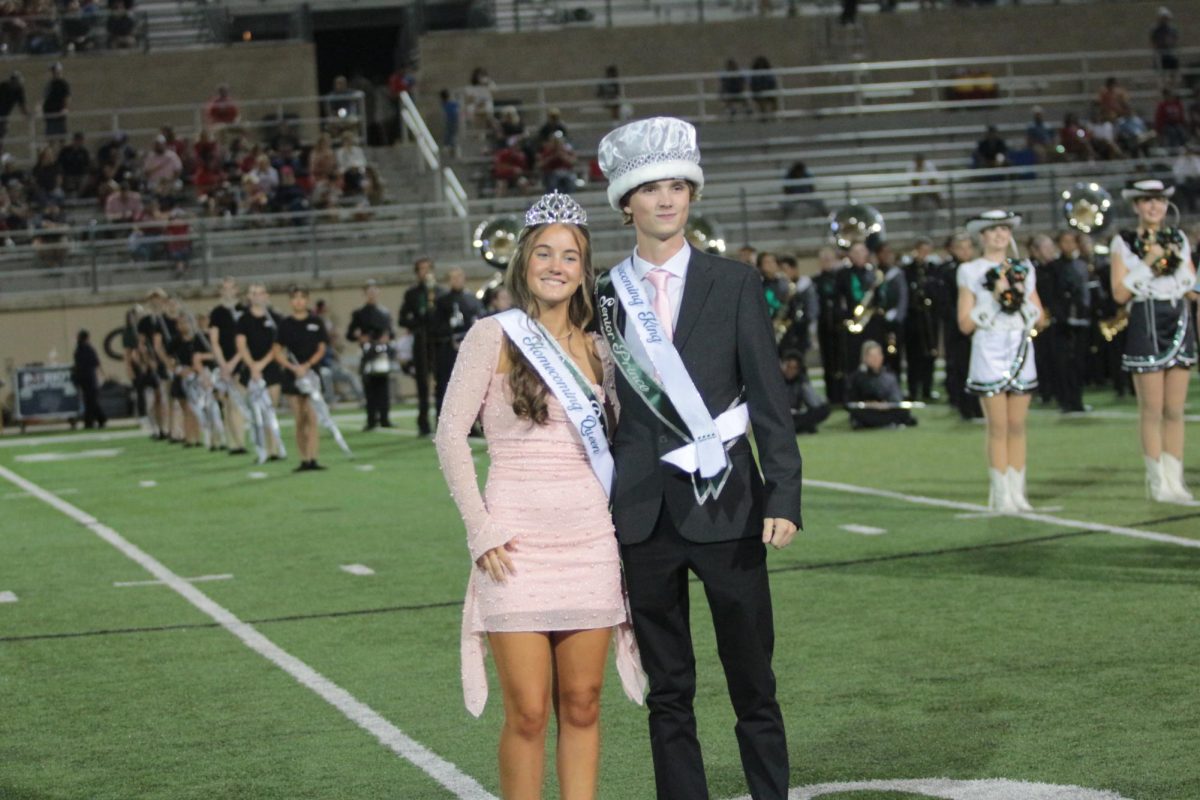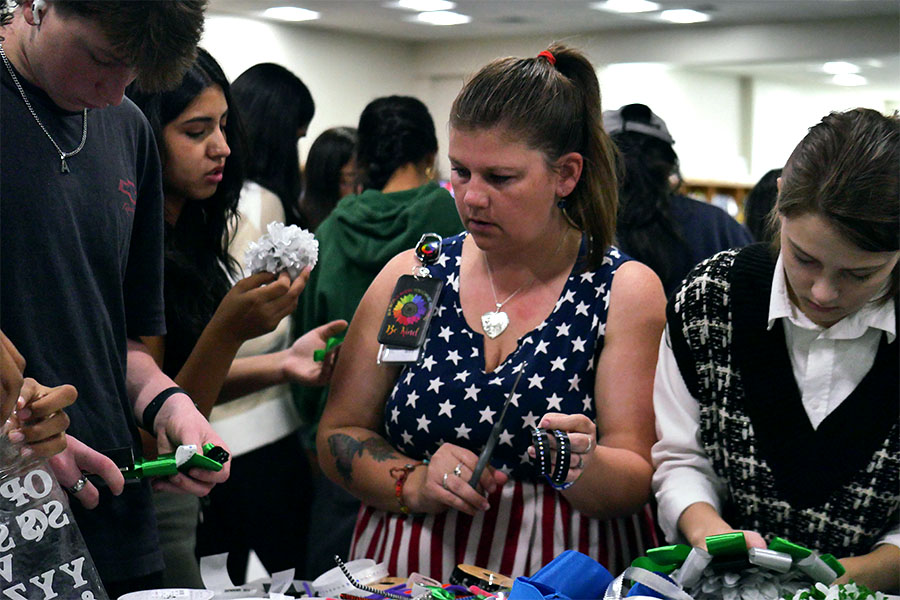During the first six weeks of school, Maureen McShane, government teacher, administered a United States Citizenship test to her AP students. Surprisingly, almost every one of her students failed the test. How could this be? So often we complain about our government and bureaucracy yet how much do we actually know about it? Statistics say that less than 15 percent of American citizens have a full understanding of how their government actually works. To get a more in-depth look as to what the problem is, McShane gives her opinion.
Describe the test you administered to your students.
“I verbally asked questions off of the US citizenship test; I asked both my regular and advanced placement classes.”
On average how well/poorly did they do?
“My AP students do tend to do better because there is an emphasis on reinforced information from US history, which is stressed a little more as far as retention, because the AP students take a test. Overall, six classes—and this semester I had one AP class , so five regular level classes—about 95% failed the US citizenship test—which is just basic. And I don’t specifically pick hard questions, I don’t specifically dwell on the easy questions either, I mix it up. But they are very basic questions like who is the vice president –that students don’t know. I mean, I’m not intentionally trying to make it hard so that many students fail.”
Do you have experience teaching foreign students? If so, generally how well do they do?
“I do. At the senior level I have not had that as an issue, but I taught US history for six years. The sad issue, the sad reality is that because there is more of a focus, as not something that is taken for granted-some of my best US history students are my foreign exchange students. They were always consistently, if not the best, students in my history class, one of the top students because, again, they are paying more attention. Quite frankly they have been exposed to it—we are a super power, they know more and they are taking their education opportunity here more seriously as well. Again, it’s not something that is taken for granted or something they don’t necessarily care about. Here, we are already citizens so we don’t necessarily worry. If, for example, we said if you don’t pass [this test] you get something taken away from you, maybe there would be less of an issue. For foreign exchange students, [they are] consistently better and know more about the world in general.”
Where do you think the problem lies– government, education, society, etc.?
“I think it is a combination of all those elements. It goes back to the framers of the Constitution. We have the Electoral College because they did not trust society to be well informed, and we take those things for granted. The further away we are from them—the further we take advantage of things that are already provided for us. Again, we’re already citizens. A lot of the youth, especially seniors, are starting to be more aware so they are a little better. When I used to give it junior year they did even worse. Because again, they are not necessarily paying attention to the government. You’re more worried about what school am I going to get into, how are my classes—the focuses. In fairness, there is that element in the education department but the reality is I could give this to adults and the results would be very poor. We don’t want to go vote just because it’s raining out. We don’t necessarily take the time to educate ourselves about the information. We are a society that has forgotten that we really have sacrificed to have these privileges, to have these freedoms. Quite frankly, government does what it is supposed to do so [we don’t worry about it]. That element alone—we don’t stress that enough. There is a combination of all of it. I try to be a small motivator for it, but the bottom line is that it always comes down to the individual—there will always be people who really don’t care. [There are those who think] if the government is working, why do I need to pay attention to the bigger picture? I’m already a citizen why do I need to pay attention to the details—all those little things.”
So you believe there would be roughly the same results among adults?
“I do. Not as high, perhaps, especially in Austin—it is the capitol and we are certainly more politically aware. But I believe if you did a random sampling, yes, even a question as simple as ‘who is the vice president?’ [Unless something happens] people don’t know. Even something that has been in the news for eight years, people don’t know. You can ask a large population of women: what amendment allowed you to vote? Sadly, we’ve had that right, so why remember why we got it. Because we’ve passed that, because we already have that, we don’t give it consideration. Now if it was a requirement to pass high school to pass the citizenship test, there would be a whole other situation.”
So you think that is a good solution?
“I think then people would say that it is a forced issue. We again are trying to put ownership into adults, into our populations. Patriotism should not be something we force. An understanding of our government, of what you have provided to you, should not be forced. If you turn it into one more thing that is just a forced issue, fine. They’ll graduate, they’ll study and they’ll pass, but then they’ll forget it. Just like how some naturalized citizens might forget twenty years down the road. But again, it is a gift they wanted, they wanted it so much that they did study for a test. We don’t have to do that.”
In your opinion, how important is this knowledge in everyday life?
“To me, obviously I have a bias, my passion is US history and my passion is US government, so there is a level of unfairness there. [This knowledge] allows you a picture to understand everything else. If you don’t understand it and you are just going to complain about things without understanding the function, organization, the workings of it—you are going to have individuals who make ignorant choices. People who make naïve comments perpetuate problems instead of problem solving. And, if we really want a more cohesive nation, we need a more cohesive understanding of our nation and how it works. So, to me, I think it’s extremely important.”










![Broadcast, yearbook and newspaper combined for 66 Interscholastic League Press Conference awards this year. Yearbook won 43, newspaper won 14 and broadcast took home nine. “I think [the ILPC awards] are a great way to give the kids some acknowledgement for all of their hard work,” newspaper and yearbook adviser Paige Hert said. “They typically spend the year covering everyone else’s big moments, so it’s really cool for them to be celebrated so many times and in so many different ways.”](https://cphswolfpack.com/wp-content/uploads/2025/05/edited-ILPC.jpg)





![Looking down at his racket, junior Hasun Nguyen hits the green tennis ball. Hasun has played tennis since he was 9 years old, and he is on the varsity team. "I feel like it’s not really appreciated in America as much, but [tennis] is a really competitive and mentally challenging sport,” Nguyen said. “I’m really level-headed and can keep my cool during a match, and that helps me play a bit better under pressure.” Photo by Kyra Cox](https://cphswolfpack.com/wp-content/uploads/2025/09/hasun.jpg)

![Bringing her arm over her head and taking a quick breath, junior Lauren Lucas swims the final laps of the 500 freestyle at the regionals swimming competition on date. Lucas broke the school’s 18-year-old record for the 500 freestyle at regionals and again at state with a time of 4:58.63. “I’d had my eye on that 500 record since my freshman year, so I was really excited to see if I could get it at regionals or districts,” Lucas said. “ State is always a really fun experience and medaling for the first time was really great. It was a very very tight race, [so] I was a bit surprised [that I medaled]. [There were] a lot of fast girls at the meet in general, [and] it was like a dogfight back and forth, back and forth.” Photo by Kaydence Wilkinson](https://cphswolfpack.com/wp-content/uploads/2025/03/Kaydence-2.7-23-edit-2.jpg)
![As her hair blows in the wind, senior Brianna Grandow runs the varsity girls 5K at the cross country district meet last Thursday. Grandow finished fourth in the event and led the varsity girls to regionals with a third place placement as a team. “I’m very excited [to go to regionals],” Grandow said. “I’m excited to race in Corpus Christi, and we get to go to the beach, so that’s really awesome.” Photo by Addison Bruce](https://cphswolfpack.com/wp-content/uploads/2025/10/brianna.jpg)











